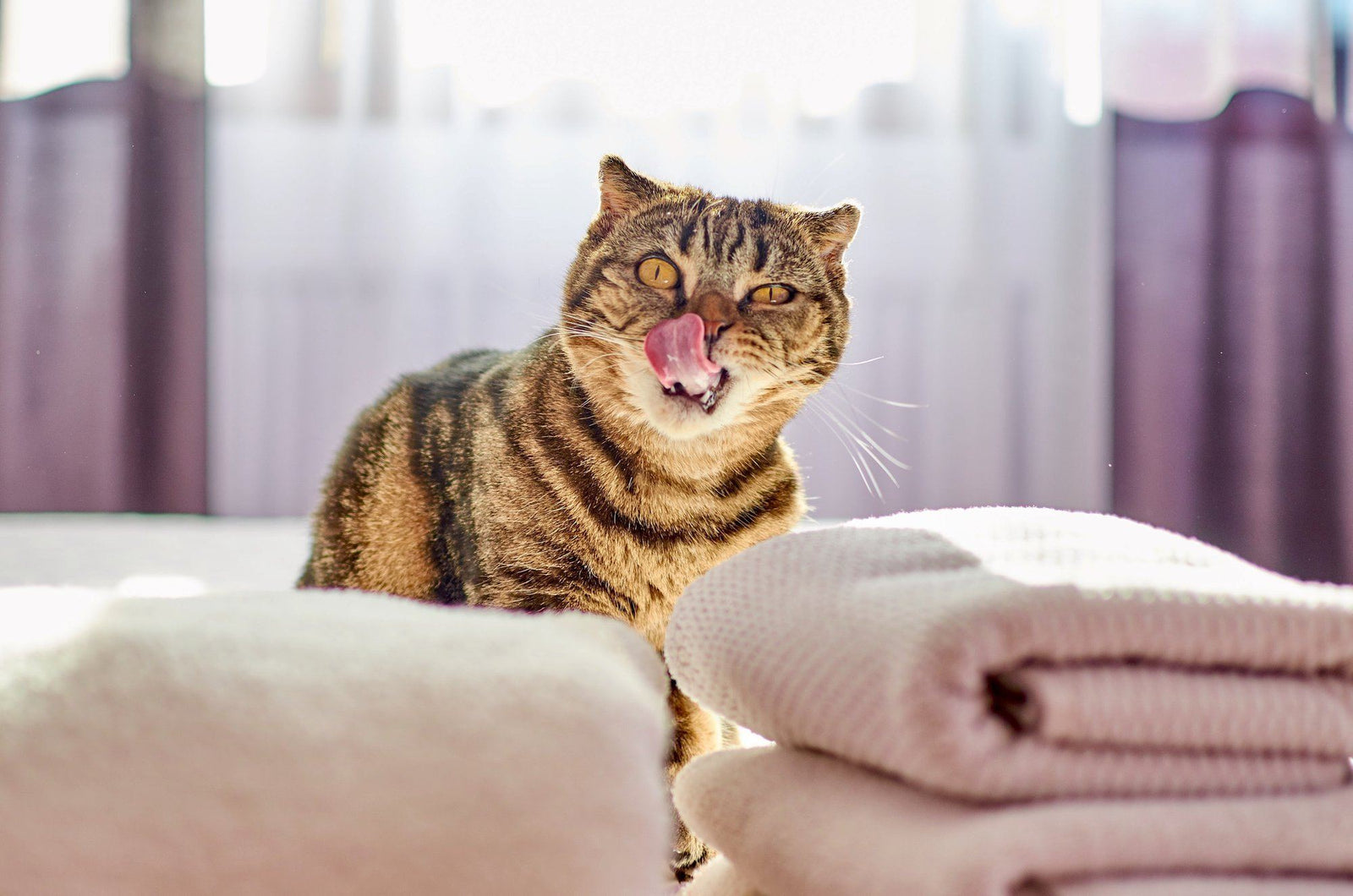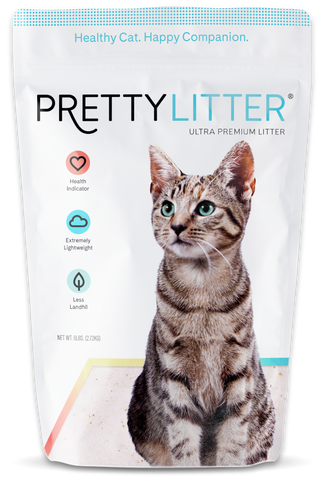
If you've experienced the joys of a drooling dog or the wet kisses of a teething toddler, one of your favorite things about your feline fur baby may be her lack of constant saliva. This doesn’t mean she’s immune to a little slobber, but if you’ve recently thought, "my cat is drooling way more these days," it could be time for Fluffy to get a check up.
Unlike their canine friends (or foes), cats aren’t prone to drooling very much. The sight or smell of their favorite tasty treat doesn’t lead to excessive salivation like it does for dogs...or pet parents.
While an unusually drooly kitty may be unusual, there are many potential causes – some deserving of more worry than others. For instance, Fluffy may dribble on her pillow a bit when she’s deep in dreamland or when she’s particularly anxious, but it could also indicate an issue that should be discussed with your vet.
Is it Caused by Stress?
Your feline friend may purr and nuzzle her head against your leg when she's particularly pleased to see you. She may even occasionally drool a bit when you're rubbing behind her ear or she's sleeping next to you on the sofa.
Alternatively, she may hiss when things aren't going her way or may dribble when's anxious at the vet's office or on a car trip.
According to Dr. Arnold Plotnick of Manhattan Cat Specialists, drooling in response to emotions is well within the realm of normal cat behavior and shouldn't be any cause for concern, especially if these are reactions you witness on a regular basis.
You know your little one better than anyone. Keep an eye out for any change in your kitty's behavior and reactions. Drooling can be a red flag if it starts happening suddenly, more frequently, or excessively.
Are Tooth Troubles Why My Cat is Drooling?
A common cause of excessive cat drooling is teeth and mouth problems. If your fur baby is experiencing pain in her mouth, she may not be able to swallow her saliva, causing the excess to dribble out.
Two common feline dental problems are gingivitis and tooth resorption. Gingivitis happens when the gums around your cat's teeth become red and swollen and is caused by plaque build up on her teeth. Tooth resorptions – or "cat cavities" – are tiny holes in your kitty's teeth.

According to the Cornell University College of Veterinary Medicine, both of these common dental problems can lead to drooling.
Beyond tooth troubles, your little one could be experiencing oral pain from other issues in her mouth. The severity of oral diseases and ailments ranges widely, but an exam from your vet will help to determine the cause and find the best solution.
What About Food, Medicine & Other Foreign Objects?
If you've ruled out emotional reactions and dental problems, your kitty's drooling may be caused by eating drugs, toxins, and foreign objects.
According to Dr. Plotnick, unpleasant tasting medicines can actually cause kitties to salivate profusely, as can certain pills if they touch her tongue while they're being administered.
Ingesting too much of certain pesticides, plants, and household cleaning products can also lead to lots of drool and other signs of food poisoning.
According to Dr. Christine Bellezza, former Co-Director of the Cornell Feline Health Center, "Uncharacteristic sluggishness, unsteady gait, drooling, heavy breathing, diarrhea, seizures, and sudden bouts of vomiting are among the common clinical signs of feline poisoning (toxicosis)."
The most important thing when it comes to observing anything about your fur baby's health and behavior - including her delightful drooling - is noting changes and talking to your vet if you're unsure of what's going on.
Do you have an adorable snapshot of your slobbery fur baby? We'd love for you to tag us on Instagram @PrettyLitter.

